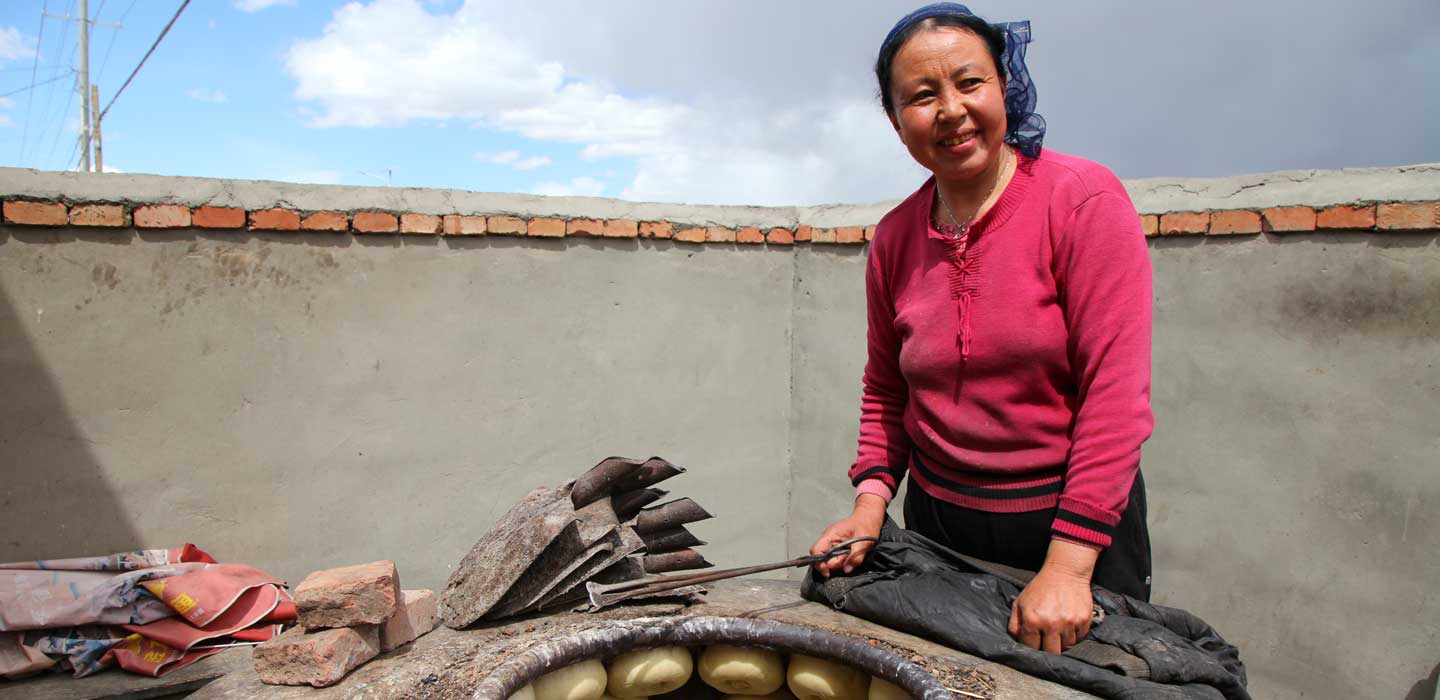Stories
Stories

Stories
Manual Submenu Topics
SearchResultsFilters
Search Results
Community-driven change brings water security in Tonga
Eua Island is home to many of the Kingdom of Tonga’s natural resources. Recently, climate change and natural disasters have caused significant water supply challenges, but an IFAD-supported project – made possible by the islanders’ incredible community spirit – is working to change that.
Three ways to harvest water in Brazil’s sertão
For centuries, people living in Brazil’s semi-arid region have struggled with a lack of water. But over the last decades, thanks to support from IFAD and other development actors, these communities are squeezing a few more drops of water from Mother Nature.
Climate-smart agriculture supports food systems in rural Georgia
Through the use of climate-smart agriculture techniques, an IFAD-supported project is helping rural Georgian farmers holistically restore their local and regional ecosystems.
Restoring ecosystem services in the Peruvian Andes
In the Andes of Peru, rural farmers are helping to restore the region’s degraded lands and improve water security.
Unless we urgently rethink agriculture, more diseases will jump species
To “green” the Sahel, we need big plans and small actions
The best way to make the desert bloom is to dig a hole. Not a well, but a shallow pit in the sandy soil about as wide as the length of your forearm. Then add some dung, plant your seeds, and wait for the rains.
Five reasons IFAD is putting small-scale farmers at the forefront of food systems transformation
Our current food systems are not sustainable. Hunger has been on the rise for several years, with an estimated 811 million people worldwide going hungry in 2020 – and with the effects of the COVID-19 pandemic, up to 132 million more people are expected to join this number soon.
How Bhutan is showing the way in building crop biodiversity
For countries like Bhutan – nestled in the high Himalayas, historically isolated and topographically challenging – ensuring food security is vital.
IFAD-supported projects help women come back to the countryside
Life in the countryside isn’t always easy – especially for rural women, whose contributions and successes have only recently begun to receive the attention they deserve.
Keeping food on the table and preventing food loss when business is not as usual
On tap: How regular water supply helped farmers discover a green thumb in Bhutan
Despite the lush greenery that surrounds Ngarpongtang village in Thangrong, Bhutan, until recently, it was impossible to grow vegetables there. “I used to have to go to other villages to exchange pinewood for vegetables,” says Wangdi, a 54-year-old farmer. “We couldn’t get vegetables to grow here.”
Chef Bela Gil’s pesto-millet balls: A lockdown-friendly recipe
We’ve been asking our Recipes for Change chefs to tell us how they are adapting to life during the coronavirus pandemic – and to share a delicious recipe that can be made with basic cupboard ingredients.
Recipes for Change: Chef Lance Seeto’s homemade chicken, ginger and greens soup
Recipes for Change: Chef Pierre Thiam shares a lockdown-friendly vegan chilli recipe
IFAD’s Recipes for Change chefs are carrying on with life under lockdown by sharing some excellent recipes that you can make with ingredients you’ve already got in your home cupboard. Senegalese Chef Pierre Thiam joins us from his home in New York State with a delicious recipe for vegan chilli.
Recipes For Change: Chef Bowerman’s take on cooking from home under lockdown
As the world adjusts to life with COVID-19, we’re asking our Recipes for Change chefs to share some world-class recipes that you can make with ingredients you’ve already got in your home cupboard. Michelin-starred Chef Cristina Bowerman shares two simple and nutritious recipes involving chickpeas.
Recipes for Change: Dhindo – corn flour purée with nettle leaf curry and pickled tomatoes – Nepal
Beating back climate impacts in Bhutan
Five ways bamboo can fight climate change
With an estimated 30 million hectares throughout the tropics in Africa, Asia and the Americas, bamboo can provide a significant contribution to combatting climate change in the developing world, particularly in rural communities.
Community gardens pave the way for climate-resilient agriculture in Gambia
How agroecology can respond to a changing climate and benefit farmers
Current food systems are at a crossroads. There is a strong need for transforming food production and consumption patterns in a sustainable way. One where farmers adapt and build resilience to the increasing challenges from climate change and where nutritious food is available for all. Agroecology provides one solution towards this transformation.
Help farmers and the planet? Yes, we can
Tajikistan is a mountainous country nestled in Central Asia. Over five million people live a rural life, the majority of them depending on agriculture for their livelihoods.
Cooking to reduce climate change
An IFAD co-sponsored event at COP25 in Madrid brought together experts and celebrity chefs to examine how climate change is effecting food systems.